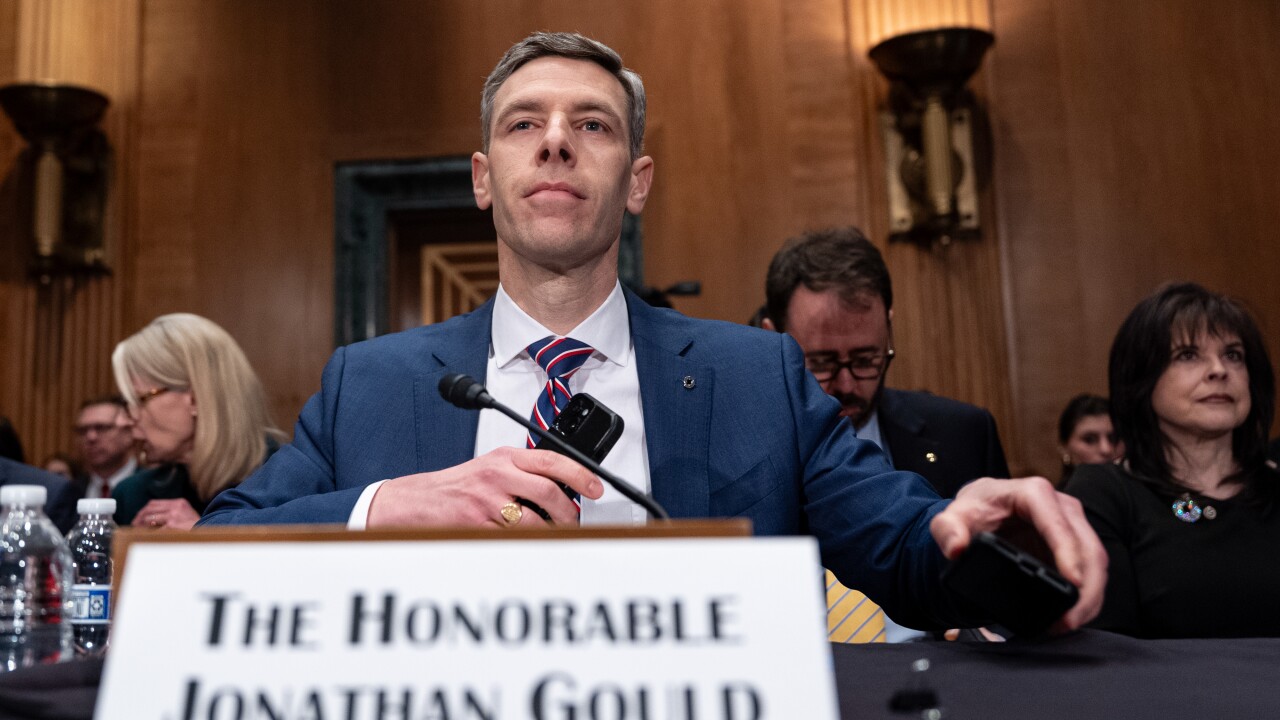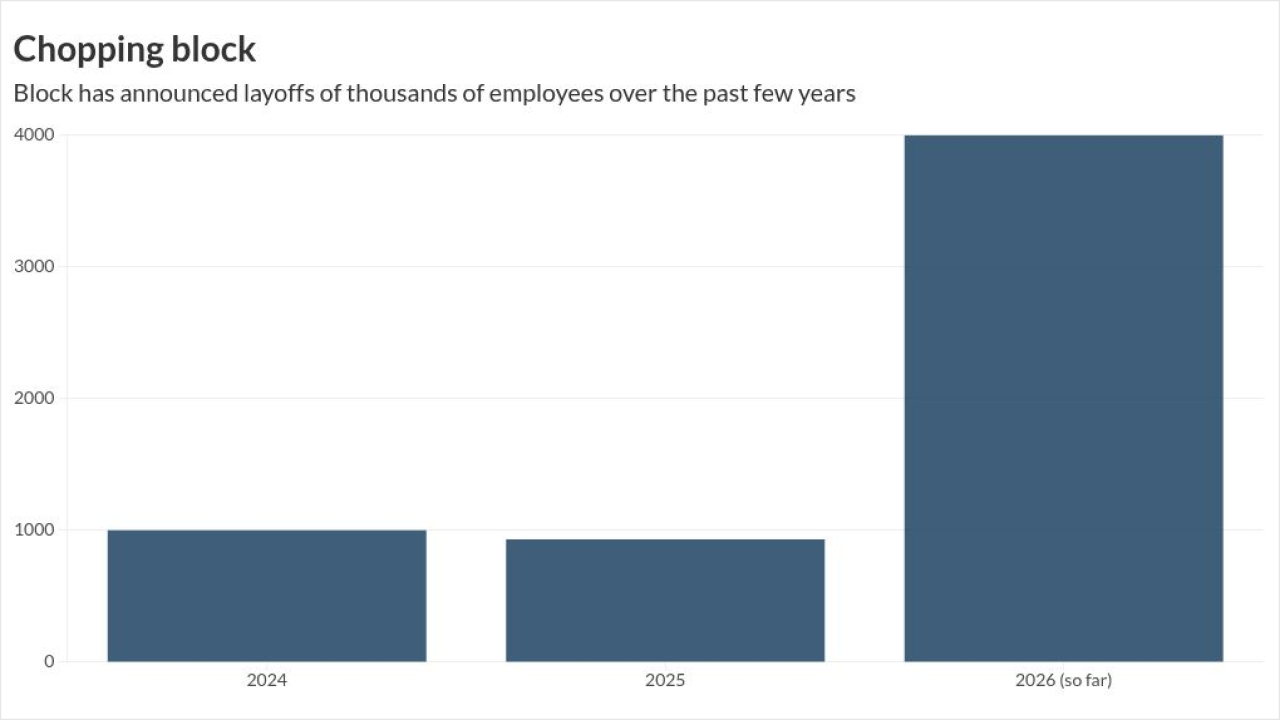Want unlimited access to top ideas and insights?
The surest sign that House Democrats plan to conduct an in-depth investigation of Deutsche Bank’s dealings with President Trump — rather than the sort of slapdash, shallow probe that Congress often stages — came in a little-noted recent hiring decision.
The House Financial Services Committee
During Roach’s tenure as a staffer on the Senate Permanent Subcommittee on Investigations, he worked for Sen. Carl Levin, D-Mich., who staged lengthy hearings where he grilled famous witnesses such as Goldman Sachs CEO Lloyd Blankfein and Apple CEO Tim Cook.
Roach did much of the behind-the-scenes work that led to those on-camera showdowns. He also had a hand in at least five separate Senate reports that examined Deutsche Bank.
Those five reports, which were released between 2003 and 2014, ought to be required reading for lawyers representing both Deutsche and President Trump. They offer a glimpse of the kind of congressional scrutiny that’s coming.

Before I joined American Banker as a reporter, I worked in 2009 on the early stages of one of the Senate subcommittee’s investigations, as part of a fellowship on Capitol Hill.
I got to know Roach as a good-humored lawyer who was quite serious about the investigative work he was conducting. I recall him once lamenting that Congress no longer had the staff-level expertise that it once enjoyed.
Roach’s own expertise as a financial investigator is apparent in the various work the subcommittee has published on Deutsche Bank. All five reports are thorough, and they all deal with the sort of financial industry arcana that typically makes eyes glaze over in Washington.
Four of the five reports drew bipartisan support — an outcome that seems far-fetched in any probe of President Trump’s finances, since that topic is far more politically charged than the issues that Roach has typically examined in the past.
In 2003, Roach played a key role
The 2005 report found that Deutsche provided billions of dollars in lending that was critical to transactions that the bank knew facilitated potentially abusive or illegal tax shelters.
Within 10 months of the second report’s release, federal prosecutors in Manhattan
In 2010, the German megabank admitted criminal wrongdoing and agreed to pay $553.6 million.
Deutsche again came under an unwelcome spotlight in 2011 when the Senate subcommittee issued
The report’s 46-page section on Deutsche focuses on the activities of a trader named Greg Lippmann, who made a large bet against the U.S. housing market even as his employer was pumping out collateralized debt obligations made up of subprime residential mortgage-backed securities.
Lippmann was also the basis of the character played by Ryan Gosling in the 2015 film “The Big Short” — adapted from a best-seller by Michael Lewis — which focused on a small number of short sellers who correctly predicted the housing market crash that began in 2007.
Gosling’s character, who serves as the movie’s narrator, says at one point, “I never said I was the hero of this story.” The 2011 Senate report spells that point out in great detail.
The report explains that while Lippmann referred to certain housing-related securities as “crap” and “pigs,” he simultaneously did not object to inclusion of those same securities in collateralized debt obligations that Deutsche was marketing to clients.
One of those clients, M&T Bank, eventually wrote down the value of its securities in a CDO called Gemstone 7, which was underwritten by Deutsche, to $1.87 million. Their original value was $82 million.
“M&T Bank told the subcommittee that had it known about Mr. Lippmann’s views, it might have ‘thought twice’ before purchasing Gemstone 7 securities,” the Senate report stated.
Roach also worked on
In 2014, Roach and his colleagues published
Roach has also worked on Senate investigations involving money laundering, though those probes did not focus on Deutsche.
The House Financial Services Committee, chaired by California Democrat Maxine Waters, is reportedly planning to investigate allegations that Deutsche Bank helped launder money on behalf of Russian customers, in addition to looking into the bank’s business dealings with the president and his family. Trump is said to have borrowed hundreds of millions of dollars from the German lender.
The House Financial Services Committee did not provide comment for this article. Deutsche Bank confirmed that it has received an inquiry from the House financial services and intelligence committees.
“Deutsche Bank is engaged in a productive dialogue with those committees to determine the best and most appropriate way of assisting them in their official oversight functions,” the bank said in an emailed statement. “We remain committed to providing appropriate information to all authorized investigations.”
The German bank knows the drill here. Another comprehensive probe is coming.
Bankshot is American Banker’s column for real-time analysis of today's news.





